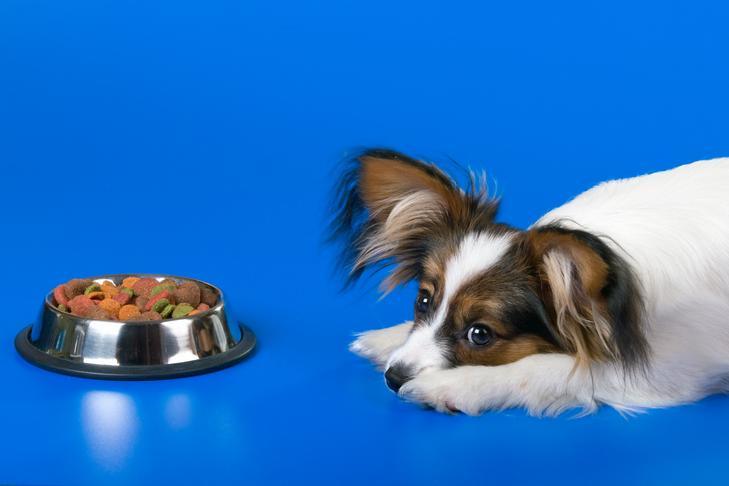Why Your Puppy Refuses to Eat New Food and What You Can Do About It
Is your puppy turning their nose up at new food? You’re not alone. Many pet parents struggle when their puppy refuses to eat new food, creating worry and frustration. This guide provides practical, veterinarian-approved solutions to help your furry friend transition to new meals without the mealtime drama.
Understanding Why Your Puppy Refuses to Eat New Food
Before addressing the problem, it’s important to understand why your puppy refuses to eat new food in the first place:
- Taste preferences: Like humans, puppies develop food preferences early
- Textural differences: The feel of new kibble can be off-putting
- Timing of transition: Abrupt changes often lead to rejection
- Health considerations: Sometimes refusal indicates underlying issues
When your puppy won’t eat new food, it’s crucial to rule out medical concerns before assuming pickiness is the only issue.
7 Effective Solutions When Your Puppy Refuses to Eat New Food
1. Gradual Transition is Key
The most successful approach when your puppy refuses to eat new food is the slow-transition method:
- Start with 25% new food mixed with 75% old food
- After 2-3 days, move to a 50/50 mix
- Progress to 75% new food after another 2-3 days
- Finally transition to 100% new food
This gradual process helps your puppy adjust to new flavors and textures without the shock of sudden change.
RECOMMENDED
Best Dry Food for Kittens in Lagos: Complete Nutrition Guide 2025
Complete Puppy Feeding Guide: What to Feed a Puppy During the First 6 Months
Searching for high-quality nutrition tailored to your puppy? Check out some of our top-rated picks
Reflex Plus Small/Mini Adult Food (with Chicken) Available in Lagos, Nigeria
Spectrum Low Grain Small Mini Puppy Food (Lamb & Blueberry)
Reflex Plus Small/Mini Adult Food (with Salmon) Available in Lagos, Nigeria
Reflex Puppy Food (Beef & Rice) 15kg, Available in Lagos, Nigeria
Shop more from our Pet Shop Below;
2. Enhance Palatability
If your puppy won’t eat new food, try making it more appealing:
- Add a tablespoon of low-sodium chicken broth
- Mix in a teaspoon of wet food as a topper
- Sprinkle a small amount of freeze-dried meat treats
- Warm the food slightly to release more aroma
These enhancements can make new food more enticing while maintaining nutritional balance.
3. Establish a Regular Feeding Schedule
When dealing with a puppy that refuses to eat new food, consistency helps:
- Feed at the same times each day
- Allow 15-20 minutes for eating, then remove the food
- Avoid free-feeding, which encourages pickiness
- Don’t offer treats or alternatives between meals
A routine helps your puppy understand when it’s time to eat and reduces selective behavior.
4. Create a Positive Environment
Your puppy’s refusal to eat new food might be related to environmental factors:
- Feed in a quiet, low-distraction area
- Use a non-slip mat under food bowls
- Consider puzzle feeders to make mealtime engaging
- Keep other pets away during feeding time
Creating the right atmosphere can significantly improve your puppy’s willingness to try new foods.
5. Check Food Freshness and Storage
Sometimes when a puppy refuses to eat new food, quality is the issue:
- Store kibble in airtight containers
- Check expiration dates carefully
- Avoid storing food in humid or hot areas
- Consider smaller bags for maximum freshness
Fresh food is more appealing and healthier for your growing puppy.
6. Rule Out Medical Issues
If your puppy won’t eat new food persistently, consult your veterinarian to:
- Check for dental problems causing discomfort
- Rule out digestive issues or food sensitivities
- Ensure there are no underlying health concerns
- Discuss appropriate nutrition for your puppy’s specific needs
A quick health check can distinguish between pickiness and potential medical problems.
7. Be Patient and Consistent
When your puppy refuses to eat new food, patience is essential:
- Avoid frequently changing brands or formulas
- Stick with your transition plan
- Don’t give in to begging with treats or table scraps
- Remember that healthy puppies won’t starve themselves
Consistency sends a clear message about expectations at mealtime.
When to Be Concerned About Your Puppy Not Eating
While some resistance is normal when your puppy refuses to eat new food, watch for warning signs:
- Weight loss or failure to gain appropriate weight
- Lethargy or decreased energy levels
- Vomiting or diarrhea
- Complete food avoidance for more than 24 hours
These symptoms warrant immediate veterinary attention, as they may indicate more serious issues beyond picky eating.
Choosing the Right Food for Your Picky Puppy
Selecting appropriate nutrition can prevent situations where your puppy won’t eat new food:
- Consider your puppy’s size, breed, and activity level
- Look for AAFCO-approved complete and balanced formulas
- Consult your veterinarian for specific recommendations
- Choose high-quality ingredients with real meat listed first
The right food makes transitions easier and ensures proper growth and development.
Helping Your Puppy Adjust to New Food: Final Tips for Success
When your puppy refuses to eat new food, remember that patience and consistency are your best tools. By implementing these proven strategies, you’ll help your furry friend develop healthy eating habits that will last a lifetime. Most feeding challenges are temporary and can be overcome with the right approach.
Remember that each puppy is unique, so you may need to try different combinations of these techniques. With persistence and care, your puppy will soon be enthusiastically eating their new food, providing them with the nutrition they need for a healthy start in life.
Need expert help with your puppy’s nutrition?
Contact Dulham Veterinary Clinic today or explore vet-recommended puppy foods to give your pet the best start possible. Don’t wait — your puppy’s health starts with the right food!
Visit Us
No 23 Crown Court Estate 2, Orunbe close , Oniru. Victoria Island, Lagos.
Phone Us
Mail Us
Frequently Asked Questions on Why Your Puppy Refuses to Eat New Food and What You Can Do About It
1. Why is my puppy not eating new food but was fine with the old one?
Puppies often resist new food due to changes in taste, texture, or scent. A sudden switch can overwhelm them. Gradual transitions and enhancements like warm broth or wet food toppers can help ease the change.
2. How long does it take for a puppy to adjust to new food?
Most puppies adjust within 7–10 days when transitioned slowly. Start with 25% new food mixed with 75% old food, increasing the new food gradually every 2–3 days.
3. Should I be worried if my puppy refuses to eat new food for a day?
If your puppy skips one meal but is active and healthy, it’s usually not a concern. However, if your puppy refuses food for over 24 hours or shows signs like vomiting, lethargy, or diarrhea, consult a vet immediately.
4. How can I make new puppy food more appealing?
Enhance palatability by adding low-sodium chicken broth, mixing in a bit of wet food, warming the food slightly, or sprinkling freeze-dried treats on top — all without compromising nutrition.

